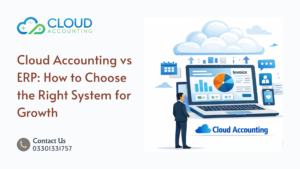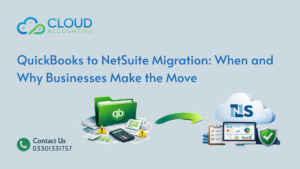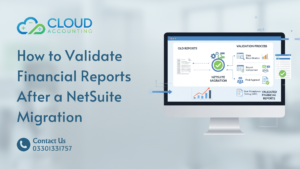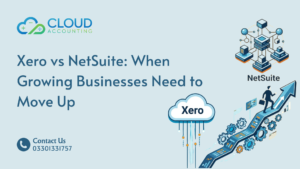Growing businesses often reach a stage where their accounting software feels more like a roadblock than a tool. If you’ve been scaling fast and relying on Xero, you may already sense that it isn’t built to handle complex reporting, multiple entities, or global operations. This is when many finance leaders start exploring a Xero to NetSuite Migration as a long-term solution.
The reality is that Xero is excellent for startups and small businesses, but once you begin dealing with high transaction volumes, expanding across regions, or needing real-time consolidated reporting, its limitations become clear. NetSuite, on the other hand, is a full cloud ERP designed to support ambitious businesses at every stage of growth. That’s why more companies in 2025 are considering whether now is the right time for a Xero to NetSuite Migration.
Here’s what this guide will cover:
- Clear signs your business has outgrown Xero
- The biggest benefits of moving to NetSuite
- What data and reports transfer during migration
- A real-world case study of a business that made the switch successfully
At Cloud Accounting, we’ve helped businesses of all sizes navigate this exact journey. Migrating your financial systems may sound daunting, but with the right process and expertise, it becomes a smooth transition that saves time, reduces errors, and sets you up for scalable success.
If you’re wondering whether now is the right time, keep reading the answers could reshape how you run finance in your business.
Signs Your Business Has Outgrown Xero
When you first started with Xero, it likely felt like the perfect fit. It was easy to use, affordable, and packed with features for small businesses. But as your company grows, you may notice cracks beginning to show. That’s when a Xero to NetSuite Migration starts making sense.
1. Reporting no longer meets your needs
One of the most common signs is when management reporting feels limited. As soon as you need consolidated reporting across multiple entities, Xero struggles. Finance teams often find themselves exporting data into spreadsheets to build the reports they need. This eats up time and increases the risk of errors. If this sounds familiar, your business may be ready for a Xero to NetSuite Migration.
2. Manual processes are slowing you down
Xero was built with simplicity in mind, but scaling businesses often need automation. If approvals, billing, or reconciliations are still being done manually, your finance team is likely spending hours each week on tasks that could be automated in NetSuite. For many growing companies, the productivity boost alone justifies a Xero to NetSuite Migration.
3. Struggling with global tax and compliance
Expanding internationally introduces challenges like multiple tax regimes, currencies, and reporting standards. Xero offers workarounds, but it isn’t designed to handle complex compliance needs. NetSuite, however, is built with global expansion in mind. For businesses opening new subsidiaries abroad, a Xero to NetSuite Migration becomes almost essential.
4. High transaction volumes are overwhelming
Another red flag is when transaction volumes grow beyond Xero’s comfort zone. Large datasets can slow performance and cause delays in reconciliation and reporting. NetSuite is designed to handle higher volumes with ease. If finance teams are struggling to keep up, it’s time to consider a Xero to NetSuite Migration.
5. Advanced forecasting and analytics are missing
Modern CFOs rely on real-time insights to drive decisions. While Xero provides basic forecasting, it lacks the deeper analytics tools that NetSuite offers. If you’re making big financial decisions without accurate, up-to-date insights, your business could benefit from a Xero to NetSuite Migration.
Quick Checklist: Have You Outgrown Xero?
If you’re nodding “yes” to several of these, you’re likely ready to explore a migration:
- Needing consolidated, multi-entity reporting
- Spending too much time on manual processes
- Expanding internationally with complex tax needs
- Handling higher transaction volumes than before
- Lacking advanced forecasting and analytics
These are the tell-tale signs that your business is ready for a new chapter. And for many fast-growing companies, that means considering a Xero to NetSuite Migration as the logical next step.
Benefits of Moving to NetSuite
When businesses outgrow Xero, the next question is simple: what do you gain by upgrading? The answer becomes clear once you look at how NetSuite transforms financial management. A Xero to NetSuite Migration isn’t just a software switch — it’s a strategic move that prepares your business for the next stage of growth.
1. Unified ERP instead of standalone accounting
Xero is great for accounting, but NetSuite is a full ERP. That means finance, operations, inventory, HR, and CRM can all live in one system. No more juggling multiple platforms or reconciling data manually. By investing in a Xero to NetSuite Migration, you unify your business under one powerful system.
2. Advanced reporting and insights
One of the biggest frustrations with Xero is the lack of advanced reporting. NetSuite changes that with deep financial dashboards, customizable KPIs, and real-time consolidation across entities. Finance leaders can make smarter, faster decisions with data at their fingertips. For companies tired of working blind, a Xero to NetSuite Migration unlocks analytics that drive growth.
3. Global-ready from day one
Expanding into new markets requires more than spreadsheets. NetSuite supports multiple currencies, tax regimes, and compliance frameworks. Whether you’re opening a subsidiary in Dubai or managing VAT across the EU, NetSuite makes it simple. For international businesses, a Xero to NetSuite Migration provides the global infrastructure needed to scale.
4. Automation that saves hours each week
Manual approvals, billing cycles, and reconciliations slow down teams. NetSuite automates these workflows, freeing finance teams from repetitive tasks. With automation built in, staff can focus on analysis and strategy instead of data entry. This is why many CFOs see a Xero to NetSuite Migration as a way to boost productivity without increasing headcount.
5. Industry-specific functionality
Xero offers general accounting tools, but NetSuite goes further with industry editions tailored to eCommerce, SaaS, manufacturing, and retail. These modules handle sector-specific needs such as subscription billing or supply chain management. Businesses operating in complex industries often find that a Xero to NetSuite Migration finally gives them the features they’ve been missing.
What You Gain with a NetSuite Upgrade
Here’s a quick look at the top benefits finance teams notice after migrating:
- Real-time financial dashboards and KPIs
- Multi-entity and multi-currency consolidation
- Automated billing and approval workflows
- Global tax and compliance support
- Customizable modules for industry-specific needs
- Scalable platform that grows with your business
Each of these points shows why companies see a Xero to NetSuite Migration as more than a short-term fix. It’s about future-proofing the business.
6. Scalability that matches your ambition
Growth-minded businesses need systems that scale without constant replacements. NetSuite was built for midsize and enterprise-level companies, but it adapts as you grow. Whether you’re doubling transactions or adding subsidiaries, the platform expands effortlessly. That’s why planning a Xero to NetSuite Migration early prevents costly software changes down the line.
7. Improved collaboration across teams
With NetSuite, finance, operations, and leadership work from the same source of truth. This reduces miscommunication and ensures every department is aligned. For CEOs and CFOs, this transparency is invaluable. Many business leaders choose a Xero to NetSuite Migration precisely because it brings the whole organisation onto one platform.
The benefits of moving to NetSuite go far beyond accounting. They touch every part of the business, from reporting accuracy to global compliance. If your team spends more time fixing data than analysing it, the timing might be perfect for a Xero to NetSuite Migration.
What Transfers in a Xero to NetSuite Migration
One of the biggest questions finance teams ask is simple: what actually moves from one system to the other? A Xero to NetSuite Migration covers far more than just balances. Done properly, it gives you continuity and confidence that your historic data is safe and usable in the new system.
Core Data That Transfers Seamlessly
When you plan your Xero to NetSuite Migration, you can expect these essentials to move across:
- Contacts: Customers, suppliers, and vendors
- Invoices: Sales invoices, purchase invoices, and credit notes
- Chart of Accounts: Every account code, balance, and structure
- Bank Transactions: Payments, receipts, and reconciliations
- Reports: Profit & Loss, Balance Sheet, aged debtors and creditors
These elements form the backbone of your financial records. With the right migration partner, you won’t lose track of vital relationships or history.
Data That May Need Adjustments
Not everything moves across in perfect form. Some elements need manual tweaks or additional configuration in NetSuite. During your Xero to NetSuite Migration, it’s important to understand the limitations:
- Payroll Data: May need reformatting depending on regional compliance
- Recurring Invoices: Often need to be rebuilt in NetSuite’s automated billing system
- Custom Reports: Templates in Xero usually don’t carry over directly
- Attachments: Linked files may need to be exported and re-uploaded manually
This is where having experienced consultants makes all the difference. They ensure your finance team isn’t left filling gaps after the move.
At-a-Glance: What Moves with You — and What Doesn’t
What Transfers
- Customers, suppliers, vendors
- Sales & purchase invoices
- Chart of accounts & balances
- Banking history
- Standard reports
What Doesn’t (Without Adjustments)
- Payroll records
- Recurring invoice schedules
- Custom reporting formats
- Document attachments
Knowing this upfront prevents surprises and helps you prepare for what a Xero to NetSuite Migration will realistically deliver.
Why This Matters for Finance Teams
For CFOs, controllers, and accountants, continuity is critical. You don’t want gaps in reporting or incomplete data trails. A carefully managed Xero to NetSuite Migration ensures you can still produce year-on-year reports, track historical debtors, and satisfy auditors with complete records.
The right migration process is about more than moving numbers. It’s about protecting the story your data tells. That story shows investors your growth, tax authorities your compliance, and management your financial health. With Cloud Accounting, the outcome of a Xero to NetSuite Migration is a system that feels familiar, but with the power and scalability your business has been missing.
Case Study: From Xero Struggles to NetSuite Success
Stories often speak louder than features. To see the real impact of a Xero to NetSuite Migration, let’s look at how one mid-sized business made the switch.
The Challenge
A fast-growing eCommerce company had been using Xero since launch. It worked well during the startup stage, but cracks began to show as sales doubled year after year. The finance team faced three major issues:
- Consolidation headaches across three entities in different countries
- Slow reporting cycles, often taking weeks to finalise monthly close
- Manual billing processes that consumed countless hours
The CFO realised Xero was holding the business back. Growth targets for the next three years would be impossible without a more scalable platform. That’s when leadership began exploring a Xero to NetSuite Migration.
The Migration Process
Working with Cloud Accounting, the company took a phased approach:
- Assessment & Planning: Mapping data from Xero to NetSuite, identifying gaps
- Data Migration: Moving contacts, invoices, and chart of accounts into NetSuite
- Configuration: Setting up multi-entity reporting and automated billing workflows
- Testing: Running parallel systems for two months to validate accuracy
- Go-Live & Training: Finance team onboarded and supported post-launch
By managing the transition carefully, the business avoided disruptions and retained confidence in its financial data.
The Results
Within the first quarter after the Xero to NetSuite Migration, the results were striking:
- Monthly close time dropped from 15 days to 5 days
- Finance team productivity rose by 40% thanks to automation
- Leadership gained real-time insights into global performance
- Auditors praised the completeness and accuracy of the migrated data
The CFO summed it up best:
“We didn’t just change software — we transformed how finance supports the business. Moving from Xero to NetSuite was the best decision for our growth.”
Why This Matters for You
This case study reflects the journey many companies face. If your business is spending more time fixing data than analysing it, you may be in the same position. A Xero to NetSuite Migration provides not just new technology, but a foundation for faster growth and stronger decision-making.
At Cloud Accounting, we’ve guided businesses through this exact process, ensuring minimal disruption and maximum value. If you’re ready to explore the same transformation, it’s time to take the first step.
Book your free consultation today and see how a Xero to NetSuite Migration can reshape your finance function.
Is It Time for Your Business to Move?
Every business reaches a tipping point where yesterday’s tools can’t support tomorrow’s goals. Xero is excellent for startups and smaller companies, but once you expand, its limitations become impossible to ignore. That’s when a Xero to NetSuite Migration stops being optional and becomes a smart, strategic decision.
If you’re experiencing slow reporting, struggling with global compliance, or dealing with data bottlenecks, you’re not alone. These are the exact challenges other growing businesses faced before making the move. And just like them, you could unlock faster reporting, automation, and true scalability by choosing a Xero to NetSuite Migration at the right time.
At Cloud Accounting, we don’t just move data — we help finance leaders transform the way they run their departments. Our proven process ensures accuracy, minimises downtime, and gives your team the tools to succeed.
Ready to Take Action?
- Get clarity on whether now is the right time for your business
- Understand what transfers and how the process works
- See real-world results from companies like yours
Book your free consultation today and find out how a Xero to NetSuite Migration can future-proof your business.
The decision to switch is big, but the rewards are bigger. The sooner you take action, the sooner you’ll free your team from limitations and give your business the foundation to grow without boundaries.








